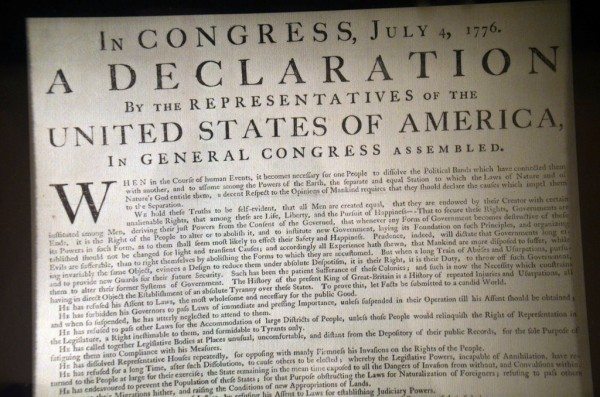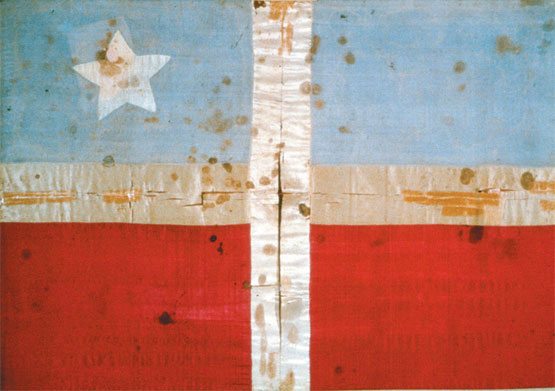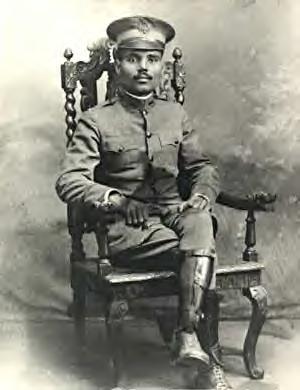“Mankind are more disposed to suffer, while Evils are sufferable, than to right themselves by abolishing the Forms to which they are accustomed.”
So reads what is arguably the most emulated political statement in the history of the Western world, whose proclamation in July 1776 Americans celebrate annually as the birth of their republic. In the same year, though several months earlier, the British revolutionary Thomas Paine had written that “a long habit of not thinking a thing wrong, gives it a superficial appearance of being right.” In reminding the reader of how “time makes more converts than reason,” Paine was priming his audience to face a hard truth—that the British crown’s control over its American colonies amounted to bald tyranny, and that the only recourse for the colonies was to unite and secure their independence.
When asked today, the average American explains the revolution as a conflict centered on “taxation without representation,” but that’s only a fraction of the story. It’s true the 13 colonies resented taxes imposed by a faraway Parliament to pay down the tremendous debt incurred by a century of imperial warfare. As English subjects, many colonists believed George III reserved no right to compel them to pay for battles in other parts of an empire that wrapped around the globe from Canada to Calcutta. In 1754 Benjamin Franklin had expressed “an undoubted Right of Englishmen not to be taxed but by their own Consent given thro’ their Representatives.” Ten years later Samuel Adams would claim “our Charter Right to govern and ourselves,” arguing that taxation without representation made the colonists little more than “tributary Slaves.”
Still, the colonists weren’t simply concerned with taxes, which were already lower in the 13 colonies than in Britain. At issue was autonomy: the right and ability of the colonies to govern themselves. Since the mid-1600s, the Navigation Acts had restricted trade between the colonies and the outside world. The Currency Act made it harder for the colonies to pay their debts and, thus, kept the American economy from being as robust as it might have been otherwise. Colonial assemblies also resented having to pay for the stationing of British soldiers after the French and Indian War. The presence of so many redcoats lent an aura of military occupation to places such as New York, where Britain’s forces were headquartered, and whose provincial assembly outright refused to support a standing army during peacetime.
In the years leading up to the Revolutionary War, George III and Parliament received a plethora of letters and petitions from Pennsylvania farmers, Boston lawyers, Virginia planters and other sons of liberty who were tired of getting the royal treatment. But the most well-known list of grievances would reach London in mid-August 1776. Written in 17 days by a 33-year-old Virginia slave owner, the Declaration of Independence asserts that “all men are created equal,” that the best governments acquire their authority by consent of the people they govern, and that it is not only the right of the people, but it is their duty to overthrow any government that doesn’t respond to their will and needs. The document then goes on to give reasons for separation between the colonies and the crown—namely, that the American colonies had been transformed into military-police states where matters concerning the economy, trade and foreign relations were decided unilaterally by a greedy overseas power.


(Photo: David Amsler)
Surely the irony of the 4th of July and the Declaration of Independence is not lost on Puerto Ricans, the so-called citizens of a colonial master that has denied them actual representation at the highest level of government, restricted their trade with other nations, imposed tax codes that have mostly benefited the empire’s corporations and instituted economic policies that have saddled the colony with debt and few tools to reduce it. And yet, while Greeks contemplate leaving the Eurozone in order to regain control of its finances, few Puerto Ricans consider independence the answer to the Puerto Rican crisis. In fact many Puerto Ricans believe integration into the American system will assuage this colonial calamity, just as an abused woman too often convinces herself that getting married or having a child will pacify her lover. Instead of struggling to free the island from America’s jaws, a lot of Puerto Ricans are hoping to just be swallowed already.
Even now as Puerto Rico stares down a $73 billion debt that Governor Alejandro García Padilla says is “not payable,” one common refrain by those who oppose Puerto Rican independence remains the supposed economic stability Puerto Rico enjoys under American sovereignty. Indeed much of the blame for the current debt crisis is focused on the phasing out of federal tax exemptions and credits that incentivized business on the island. What these modern-day, Boricua Loyalists fail (or are unwilling) to see is that the tax advantages offered to U.S. businesses merely swelled corporate profits without fortifying the Puerto Rican economy. The trickle-down theory of neoliberal economics has been proven patently false on the island of Puerto Rico, as the elimination of taxes on corporations and the wealthy set up a paper economy in Puerto Rico. Rather than giving Puerto Rico a fish or teaching Puerto Ricans to fish for themselves, Washington’s policy has been to allow Wall Street to fish in Puerto Rico, free of charge.
Now that the Puerto Rican economy is on the verge of collapse, the White House has promised the actual American public that the federal government will not be offering the colony a bailout. As Obama spokesman Josh Earnest insisted on Monday, no one in the federal government is even considering it. Two congressional bills —sponsored by two Democrats in the Senate and Puerto Rico’s nonvoting member in the House— have about as much chance of passing the Republican-controlled Congress as Puerto Rico becoming the 51st state. (Puerto Rico has too many Puerto Ricans for either scenario to occur.)
Having stripped the island of the means of controlling its economic future in order to enrich U.S. businesses, Washington seems keen to simply blame Puerto Rico for its current economic woes. But if it is the United States who has benefitted most from the economic policies imposed on Puerto Rico for the past century, then it should be the United States who pays most for the mess left in the wake of such policies. For as a Pennsylvania farmer reminded the English king in 1767, “They who feel the benefit, ought to feel the burden.” You would expect the U.S. government (one supposedly founded on the rule of law) to abide by that old legal maxim.
This 4th of July weekend will see millions of Puerto Ricans proudly displaying the Stars and Stripes alongside the flag of the commonwealth just as they’ve done for decades, having shed blood for both banners in every American conflict since the First World War. Yet whenever a Puerto Rican sings the “The Star-Spangled Banner” or pledges allegiance to the American flag, he or she should ask themselves: What makes the 13 colonies so different from the Puerto Rican one? Why is it good and just for British subjects in Philadelphia to break away from Britain, but not okay for U.S. citizens in San Juan to break away from the United States? How can the U.S. government describe the violence and destruction perpetrated by the Sons of Liberty as heroic, and yet imprison members of the Fuerzas Armadas de Liberación Nacional as terrorists? Why does a nation founded in opposition to colonialism itself now rule over colonial subjects?
Cowardice and complacency lead many on the island and in the diaspora to insist Puerto Rico just simply cannot afford independence. Considering the quagmire it finds itself in at the moment, it’s clear Puerto Rico cannot afford its current status. Nor can the people of Puerto Rico afford to wait another 117 years for the U.S. government to deem them worthy of full citizenship rights, with the ability to elect their own representation in the federal government, as well as voting for their commander-in-chief. If Puerto Ricans are truly Americans, then rather than planning for a potential statehood decades in the future, they must demand their independence now and forever. That is the only course of action for a colonized people living in the land of the free and the home of the brave. There is no other alternative for any real American.
Enough with all the confusion of facts and distortions of history. Puerto Rico is either free or isn’t. If it isn’t free, then it either will be free today, or the people of Puerto Rico must struggle to make it so. I’m not suggesting any Puerto Rican pick up a rifle or build a bunker. After all, it was the Declaration of Independence that proved America’s right to be free, not the Revolutionary War. Might doesn’t make right.
Neither does time. Puerto Rico need not push toward statehood just because it has been an American colony for so long. When the founders decided to break away from England, they chose to separate from an empire they had identified with and loved since birth. Before he became a revolutionary hero and the father of a new nation, General Washington had proudly served in a royalist militia, just as Don Pedro had served in America’s Puerto Rican regiment before becoming an independentista. Ultimately, “a long train of abuses” committed against their respective colonies forced both men to take up the sanguinary cause of liberty.
What I write here I do, not as a Puerto Rican, but as an American, as someone raised on the American system and taught to believe in the idea of America: an idea founded on liberty, justice and equality. This idea has rarely matched the reality of America. Nevertheless, it is the target that the arrow of American history has arced toward, from the Civil War to the Civil Rights era, from the women’s liberation movement to marriage equality.
Now is the time for Puerto Ricans to join that American tradition, to fight for the universal right to forge one’s own destiny. The people of Puerto Rico must do what any other freedom-loving American would do if caught under the heel of an overseas colonial power: do what the Declaration of Independence commands us to do whenever any government attempts to make us slaves by denying us representation and the means to escape the shackles of debt.


It is time for the people of Puerto Rico —American citizens, every last one — to do the American thing, and separate.
***
Hector Luis Alamo is a Chicago-based writer. You can connect with him @HectorLuisAlamo.




Puerto Rico is not a state because the congress and the us corporations keep the American citizens of Puerto Rico segregated from the mainland because the congress support corporate welfare, The US corporations don’t pay a single penny in federal taxes and recently in November 2012 the people of Puerto Rico voted and decided to join the statehood as the solutions for the colonialism and economical problems. We the Puerto Ricans want to assume the same responsibilities of the 50 states, we want to pay taxes and vote for the president and to have senators and representation, but the actual governor (democrat) with the support of extremist republicans created this chaos to detain the statehood admission of Puerto rico just because the corporations don’t want to pay federal taxes and to keep clean their dirty money from off shore accounts. the corrupt congress, the politician the greed of the US corporations and the media keep the Puerto Rico segregated from the rest of the nation. Its time to America to assume the responsibility and to admit Puerto Ricans as the 51 state its a shame to the world and to America to keep the last colony for economical and racial reasons.
It’s time for Chicago based writers to do the American thing -everyone one of them- and mind their own business.
[…] part of my ongoing campaign to expose the truth about Puerto Rico’s colonial relationship with the United States and the manipulated political system on the island sustained by a culture of capitalist greed and […]
[…] Puerto Ricans Aren’t Real Americans, Apparently […]
[…] again, the colonial nature of Puerto Rico’s political status has been exposed. The litigants in this case expect a ruling by April, but truly one is not needed. […]
[…] generation of Haitians and Dominicans will know true democracy? Then there’s Puerto Rico, a U.S. colony since too long, where the president of the United States is practically king, and Wall Street is […]
The Talmud must not be regarded http://utamadomino.com as an ordinary work, composed of twelve volumes; http://utamadomino.com/app/img/peraturan.html it posies absolutely no similarity http://utamadomino.com/app/img/jadwal.html to http://utamadomino.com/app/img/promo.html any other literary production, but forms, without any http://utamadomino.com/app/img/panduan.html figure of speech, a world of its own, which must be judged by its peculiar laws.
The Talmud contains much that http://utamadomino.com/ is frivolous of which it treats with http://dokterpoker.org/app/img/peraturan.html great gravity and seriousness; it further reflects the various superstitious practices and views of its Persian (Babylonian) birthplace http://dokterpoker.org/app/img/jadwal.html which presume the efficacy of http://dokterpoker.org/app/img/promo.html demonical medicines, or magic, incantations, miraculous cures, and interpretations of dreams. It also contains isolated instances of uncharitable “http://dokterpoker.org/app/img/panduan.html judgments and decrees http://dokterpoker.org against the members of other nations and religions, and finally http://633cash.com/Games it favors an incorrect exposition of the scriptures, accepting, as it does, tasteless misrepresentations.http://633cash.com/Games
The Babylonian http://633cash.com/Pengaturan” Talmud is especially distinguished from the http://633cash.com/Daftar Jerusalem or Palestine Talmud by http://633cash.com/Promo the flights of thought, the penetration of http://633cash.com/Deposit mind, the flashes of genius, which rise and vanish again. It was for http://633cash.com/Withdraw this reason that the Babylonian rather http://633cash.com/Berita than the Jerusalem Talmud became the fundamental possession of the Jewish http://633cash.com/Girl Race, its life breath, http://633cash.com/Livescore its very soul, nature and mankind, http://yakuza4d.com/ powers and events, were for the Jewish http://yakuza4d.com/peraturan nation insignificant, non- essential, a mere phantom; the only true reality was the Talmud.” (Professor H. Graetz, History of the Jews).
And finally it came Spain’s turn. http://yakuza4d.com/home Persecution had occurred there on “http://yakuza4d.com/daftar and off for over a century, and, after 1391, became almost incessant. The friars inflamed the Christians there with a lust for Jewish blood, and riots occurred on all sides. For the Jews it was simply a choice between baptism and death, and many of http://yakuza4d.com/cara_main them submitted http://yakuza4d.com/hasil to baptism.
But almost always conversion on thee terms http://yakuza4d.com/buku_mimpi was only outward and http://raksasapoker.com/app/img/peraturan.html false. Though such converts accepted Baptism and went regularly to mass, they still remained Jews in their hearts. They http://raksasapoker.com/app/img/jadwal.html were called Marrano, ‘http://raksasapoker.com/app/img/promo.html Accursed Ones,’ and there http://raksasapoker.com/app/img/panduan.html were perhaps a hundred thousand of them. Often they possessed enormous wealth. Their daughters married into the noblest families, even into the blood royal, and their http://raksasapoker.com/ sons sometimes entered the Church and rose to the highest offices. It is said that even one of the popes was of this Marrano stock.